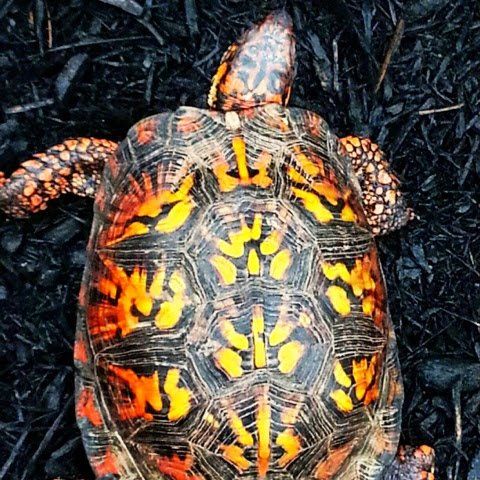DR. JOSHI'S VETERINARY BLOG IN RAHWAY, NEW JERSEY

Author: Anant V Joshi DVM www.clarkvet.com Animals were here on Earth before the humans. Millions of years ago when hominids realized that they were hunting some of the same game that wolves were hunting, hominids wizened up and probably followed the wolves for capturing their kills. Well, I think over millennia the relation between hominids and hunting animals evolved and so did the species. All dogs are evolved from wolves. And we humans? We are of course an offshoot of early Hominids, and we are the species that now rules the planet. Today, Homo sapiens all over the Earth speak thousands of languages, live in hundreds of nations, and follow a million customs. They have a thousand relations with the animal species. But no matter what, Homo sapiens is the Alpha species on planet Earth. Humans use and abuse animals for all kinds of reasons, right or wrong. Eventually, it is the responsibility of Humans that all animal species are protected. Most humans love animals. Most people including even the meat-eaters do not want to hurt the animals. A human may consume a burger in McDonalds and have a chicken sandwich as well, but when he sees a bunch of chickens crossing the road he may stop his car to let the chickens safely cross the road. Paradoxical? Sure! Same with how we view dogs. Many human cultures keep dogs as companion animals, many cultures eat dog meat. Humans are a real complex species. If native animals were exposed to different human cultures, animals would probably be quite confused! Animals have their instincts, they have certain behaviors that have evolved over millions of years. They can fend for themselves in many natural conditions. And 'natural conditions' have changed rapidly all over the world in the last 200 years. Today's world is absolutely nothing what it was 200 years ago. Can animals evolve fast enough to be perfectly alright in the present world, without human help? Probably not. And what about the animals we bring into our modern homes? One thing is certain: when an animal is brought into a human dwelling and kept there as a pet, a definite human-animal bond develops between the two. Bond of love, caring and affection. A subtle facet of this bond is that the human becomes the owner of the pet animal. The animal loses a lot of his natural instincts to defend himself in the wild, and starts to rely on the human for food, shelter, cuddling and relief. This subtle aspect can be easily lost on many humans if they do not conscientiously think about it. I see thousands of pet animals every year in my veterinary practice. I am, for the most part, delighted to see the wonderful rewards of the beautiful human-animal bond that I see amongst humans and their animals. But also, I am sometimes shocked to see a human abdicate or delegate the responsibility of his/her pet's health to the pet itself. I hear something like "The dog has been losing weight for the last several years, he is obviously getting old. He now hates to use the stairs. He may be painful in his joints. Aging, I guess." Yes! Aging! But the dog needs to get some medical tests and probably some treatments. Sure he would not get medical veterinary care if he was a wild dog living in wilderness, but now he has been living for 13 years with a human being and he deserves some medical attention! And neither is the responsibility to medically treat your dog that of the society. Or of your local shelter. Or of your government. Or of your local animal hospital. It is yours. You may have your culture, religion, fashion, morality based on who you are, but once you bring an animal home and keep him with you for 16 years (or 16 days), it is your human respondibility to address your pet's needs. Most of us love animals. Most of us love dogs and cats. But for them, love alone is not enough. They need food, water, shelter, companionship and medical veterinary care. And that is where you come in, my dear Homo sapiens! Have fun with your animal companions, but don't forget you are also their "owners" and that they depend on you for almost EVERYTHING. They depend on you, and they did not choose to become dependent on you. But now that they are dependent on you thanks to you, you need to become a true human, a true human companion to your beloved animal.

Author: Anant V Joshi DVM Wish they could talk? What do you mean 'Wish'? I mean they Do Talk! Except we don't know how to decipher their language ... their body language. See, we Homo sapiens 'talk' with our tongues. That is how we communicate a major chunk of our thought content to others. Well, now in 2013 things are a lot different than they were in, say, 1813! There was no phone, internet, photography ... other human ways to communicate. But coming back to our other living beings, animals I mean. They primarily 'talk' with their bodies ... only if we are willing to 'listen'. From making a straight eye contact to blinking an eye, from perking up their ears to wagging their tails, from crouching on the ground to laying belly up, from whining to growling, from a straight down hair coat to standing hairs, they are trying to communicate a thousand emotions. From reading our posture to responding to our pace, from listening to our heart beats to smelling our sweat, from licking our hands to tugging on our slacks: they are listening to our bodies' intended and unintended messages and responding appropriately. And when we fail to respond to them in their 'language', they get confused, frustrated, angry, anxious, sad, depressed and un-attached. Imagine living in a place where people did not understand 90% of what you said ... let us say it was a language barrier. We have the same situation here ... our animals may be thinking that we humans do not really understand them. This is sad. I believe it is our moral and ethical responsibility to try and learn the 'Animal Language'. Nay, we should learn their language because we love them. Without communicating with them, what is our love's worth for them? Anant V Joshi DVM www.clarkvet.com The opinions and ideas in this blog are mine. Following photo taken from the internet. Credits were not available.
They say man has 5 senses: Sight, Hearing, Taste, Touch, and Smell. Really? Some claim they have a sixth sense. The intuition. They seem to know the future. They seem to have the sense to see the past: things that happened in the past ... things that were so far removed in space and time from them that there is no logical explanation of how these individuals with a sixth sense could have known it. The social animal Homo sapiens has 5 senses, which are the information gathering gadgets . The brain processes the information and we make some sense of the world around us. There are millions of inputs in our brain at any given moment. Our brain is a sensitive instrument ... it is able to process these inputs brought to it by its data gathering friends, the 5 senses. One would presume that the brain would be limited by its own capacity to process information, as well as by the capacity of its data gathering friends, the 5 senses. So the more sensitive the brain is, and the more efficient the senses are, the more accurate the outcome should be of this whole exercise involving the interplay of senses and the brain. This is pretty advanced in Homo sapiens. Probably more so than in other animals.
Humans and animals are made up of the same stuff: 70% water, bones, ligaments, muscles and skin. We have similar cells, tissues, blood, lymph, bones, and the same vital organs. Our cells and our genes are so similar, that scientists regularly inject human brain cells into mice brains to see how those injected cells thrive and behave. Having been in private practice of veterinary medicine for more than 2 decades, I run into a lot of animal lovers. This is a very satisfying profession. Most people are kind-hearted, love their animals, and will do anything to save even a stray animal. Some people sleep with their animals, some share the food from the same plate. Some hunt with their animals. The degree of sharing between animals and humans is really baffling. Everybody is different, and everybody has a right to express their love in the way they think is most appropriate for their family and their animal companions. We are not going to judge anybody. We love the human-animal bond. One thing that I believe in is that we should not humanize the animals, nor should we think of humans as animals. Yes, animals and humans are eventually all animals: as my blog says ... Domestic, Wild and Social. But it is a great idea to keep the distinction in the back of our minds. I was very sad to see some TV programs where kindhearted people got killed or mauled by their own wild animals. The program is called Fatal Animal Attraction or something like that. See, wild animals are very cute, beautiful, and furry. That does not mean that they do not have millions of years of selective breeding in them to make them furious hunters. That’s how they survive ... by hunting prey. One never knows for sure when a "tamed" wild animal will erupt into his original personality of a hunter. We have all seen rowdy kids! We love them and all, at the same time we worry that a rowdy kid is going to get in trouble, is going to get hurt, or just is going to tick a neighbor or a guest off! Our dogs are like our kids. If we do not train them to behave, then they cannot be blamed for social transgressions. Just like every human kid goes to school, I think every pet dog needs to go to a boarding-training school where he will stay for a couple of weeks getting to learn all basic commands. Then of course the humans can take over and continue the life long training and learning process. Well that’s it for today talking about wild and domestic animals! The social animal, the Homo sapiens is a different beast altogether. He is very complex, egotistical, as well as of course kind and compassionate at the same time. The problem with him is that he thinks that the whole world is here for his enjoyment, and he can do whatever suits his fancy and ephemeral needs: he can destroy the eco system, pollute the rivers and oceans and the atmosphere, and drive out other animals from their natural habitats … animals that are at this stage of the evolution a little weaker than the humans. The good part is that a vast majority of this animal species, Homo sapiens , is kind hearted and is trying to save the endangered species, heal the hurt animals, and is trying to find natural habitat for displaced animals. That's a good thing we are doing! Dr. Anant V Joshi DVM

Author: Anant V Joshi DVM www.clarkvet.com Animals were here on Earth before the humans. Millions of years ago when hominids realized that they were hunting some of the same game that wolves were hunting, hominids wizened up and probably followed the wolves for capturing their kills. Well, I think over millennia the relation between hominids and hunting animals evolved and so did the species. All dogs are evolved from wolves. And we humans? We are of course an offshoot of early Hominids, and we are the species that now rules the planet. Today, Homo sapiens all over the Earth speak thousands of languages, live in hundreds of nations, and follow a million customs. They have a thousand relations with the animal species. But no matter what, Homo sapiens is the Alpha species on planet Earth. Humans use and abuse animals for all kinds of reasons, right or wrong. Eventually, it is the responsibility of Humans that all animal species are protected. Most humans love animals. Most people including even the meat-eaters do not want to hurt the animals. A human may consume a burger in McDonalds and have a chicken sandwich as well, but when he sees a bunch of chickens crossing the road he may stop his car to let the chickens safely cross the road. Paradoxical? Sure! Same with how we view dogs. Many human cultures keep dogs as companion animals, many cultures eat dog meat. Humans are a real complex species. If native animals were exposed to different human cultures, animals would probably be quite confused! Animals have their instincts, they have certain behaviors that have evolved over millions of years. They can fend for themselves in many natural conditions. And 'natural conditions' have changed rapidly all over the world in the last 200 years. Today's world is absolutely nothing what it was 200 years ago. Can animals evolve fast enough to be perfectly alright in the present world, without human help? Probably not. And what about the animals we bring into our modern homes? One thing is certain: when an animal is brought into a human dwelling and kept there as a pet, a definite human-animal bond develops between the two. Bond of love, caring and affection. A subtle facet of this bond is that the human becomes the owner of the pet animal. The animal loses a lot of his natural instincts to defend himself in the wild, and starts to rely on the human for food, shelter, cuddling and relief. This subtle aspect can be easily lost on many humans if they do not conscientiously think about it. I see thousands of pet animals every year in my veterinary practice. I am, for the most part, delighted to see the wonderful rewards of the beautiful human-animal bond that I see amongst humans and their animals. But also, I am sometimes shocked to see a human abdicate or delegate the responsibility of his/her pet's health to the pet itself. I hear something like "The dog has been losing weight for the last several years, he is obviously getting old. He now hates to use the stairs. He may be painful in his joints. Aging, I guess." Yes! Aging! But the dog needs to get some medical tests and probably some treatments. Sure he would not get medical veterinary care if he was a wild dog living in wilderness, but now he has been living for 13 years with a human being and he deserves some medical attention! And neither is the responsibility to medically treat your dog that of the society. Or of your local shelter. Or of your government. Or of your local animal hospital. It is yours. You may have your culture, religion, fashion, morality based on who you are, but once you bring an animal home and keep him with you for 16 years (or 16 days), it is your human respondibility to address your pet's needs. Most of us love animals. Most of us love dogs and cats. But for them, love alone is not enough. They need food, water, shelter, companionship and medical veterinary care. And that is where you come in, my dear Homo sapiens! Have fun with your animal companions, but don't forget you are also their "owners" and that they depend on you for almost EVERYTHING. They depend on you, and they did not choose to become dependent on you. But now that they are dependent on you thanks to you, you need to become a true human, a true human companion to your beloved animal.

Author: Anant V Joshi DVM Wish they could talk? What do you mean 'Wish'? I mean they Do Talk! Except we don't know how to decipher their language ... their body language. See, we Homo sapiens 'talk' with our tongues. That is how we communicate a major chunk of our thought content to others. Well, now in 2013 things are a lot different than they were in, say, 1813! There was no phone, internet, photography ... other human ways to communicate. But coming back to our other living beings, animals I mean. They primarily 'talk' with their bodies ... only if we are willing to 'listen'. From making a straight eye contact to blinking an eye, from perking up their ears to wagging their tails, from crouching on the ground to laying belly up, from whining to growling, from a straight down hair coat to standing hairs, they are trying to communicate a thousand emotions. From reading our posture to responding to our pace, from listening to our heart beats to smelling our sweat, from licking our hands to tugging on our slacks: they are listening to our bodies' intended and unintended messages and responding appropriately. And when we fail to respond to them in their 'language', they get confused, frustrated, angry, anxious, sad, depressed and un-attached. Imagine living in a place where people did not understand 90% of what you said ... let us say it was a language barrier. We have the same situation here ... our animals may be thinking that we humans do not really understand them. This is sad. I believe it is our moral and ethical responsibility to try and learn the 'Animal Language'. Nay, we should learn their language because we love them. Without communicating with them, what is our love's worth for them? Anant V Joshi DVM www.clarkvet.com The opinions and ideas in this blog are mine. Following photo taken from the internet. Credits were not available.









